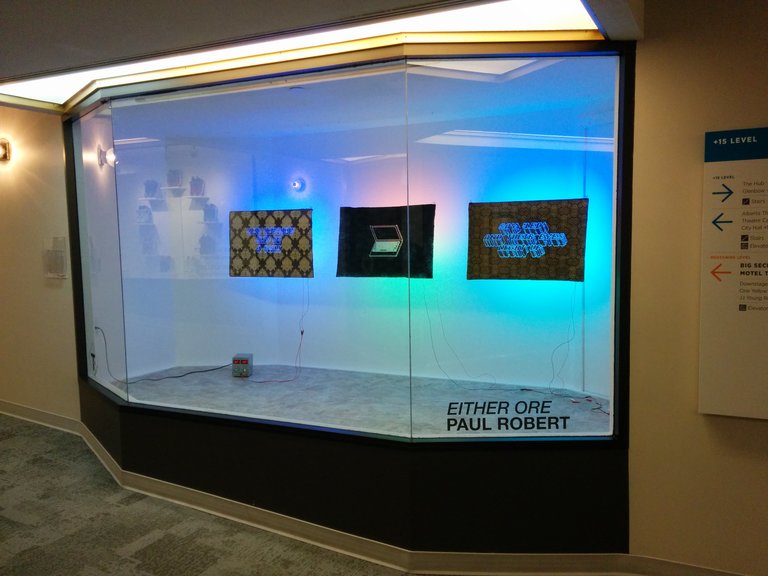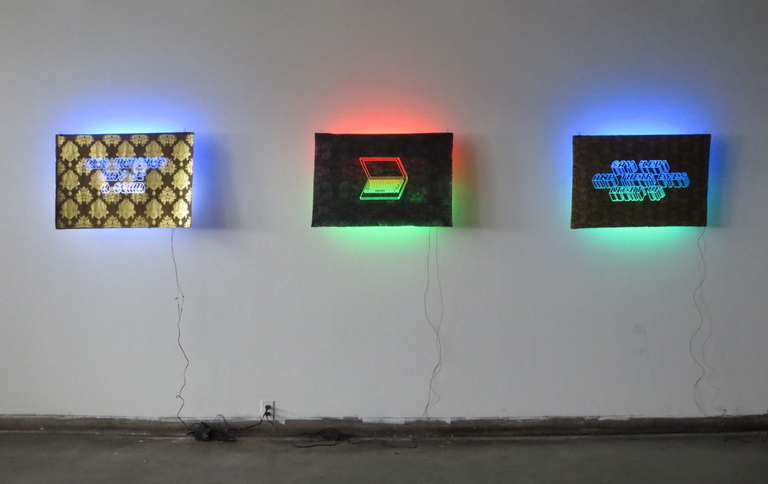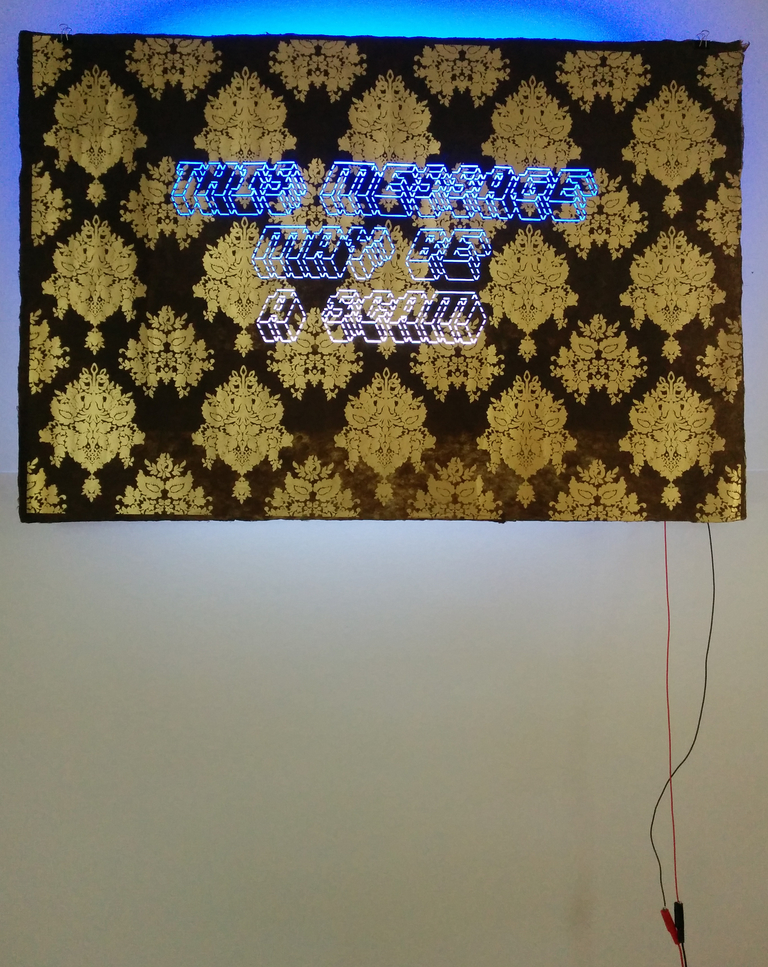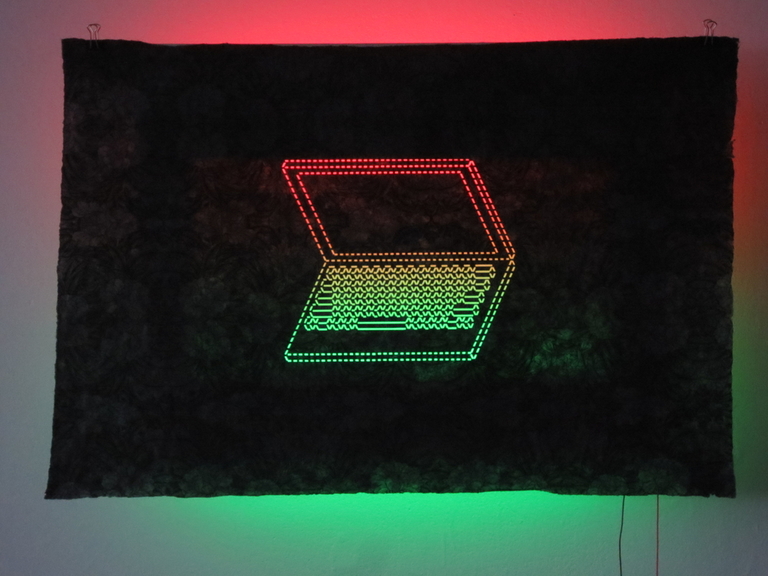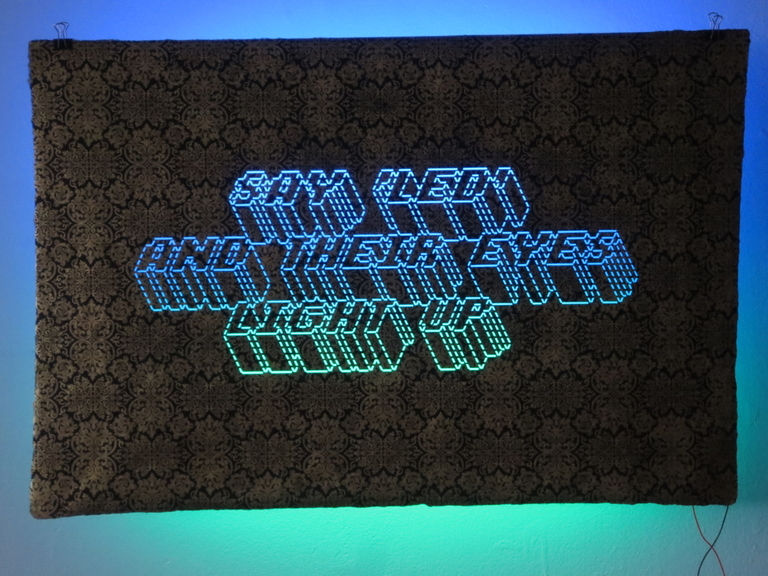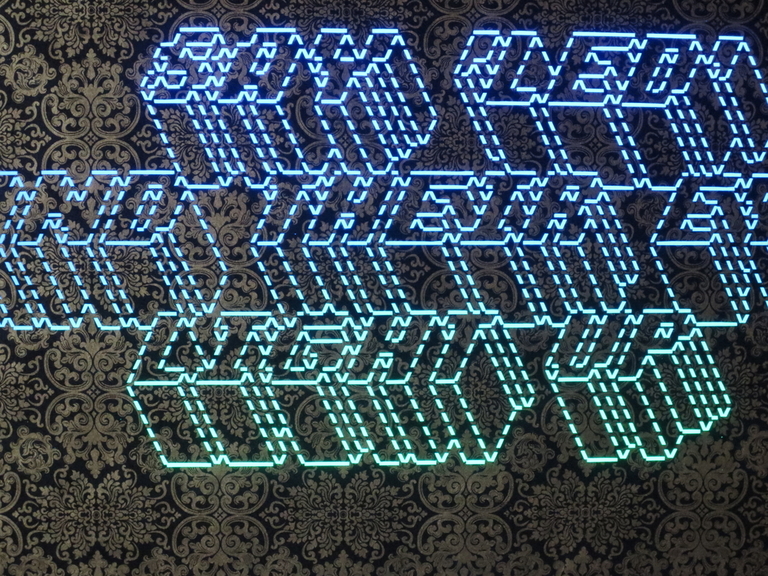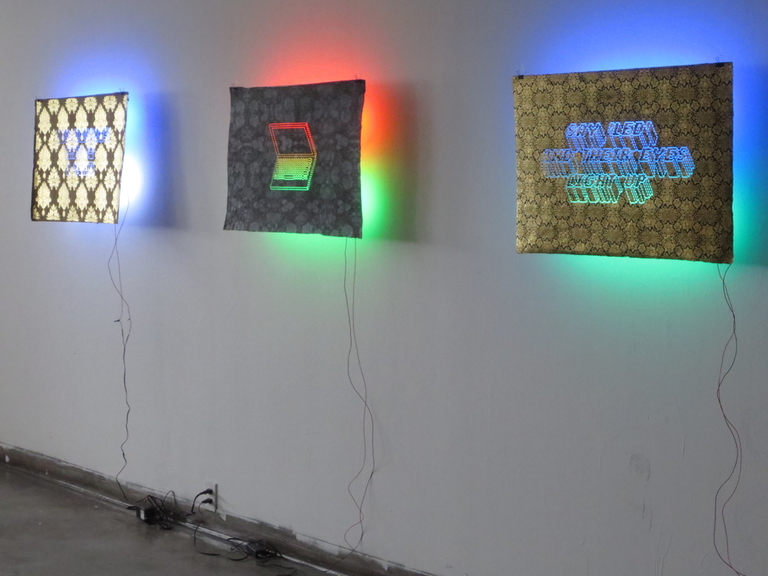Either Ore
This project is an examination of the political economy of art supply store products, specifically, Tibetan and Nepalese Lokta papers as well as "new media art" materials. The production of Lokta papers present a rare instance of handmade goods and sensuous processes resisting industrialization and mass manufacturing, a sustainable industry (the Daphne shrub is one of the world's few underutilized species), and, in the popular imagination, the preservation of a culture and way of life that miraculously resists contamination by geotourism. In actual fact however, the production of Lokta paper almost died out in Nepal in the early 1970s, and thrives today precisely because of the rise of geotourism since that time.
These papers are produced in roughly the same part of the world as those industries that represent their polar opposite: the factory villages that supply cheap electronic components for (mostly) affluent countries. They represent the most extreme perversion of the hand crafted: cheap, mindless, and repetitive manual labour, they embody the epitome of environmental degradation with the indiscriminate use of coal, plastics, and questionable metals, and they provide the ickiest examples traditional cultures "giving in" to modernization. Taken together, these factory villages also represent a threat to western economies. Whereas the Lokta paper economy relies to a certain extent on the deification of the Other, the economy of electronic goods relies on its demonization. In neither case is there a relationship of equality.
In his book From Counterculture to Cyberculture, Fred Turner has traced the influence of the New Communalist movement in northern California on many of the individuals involved in the development of the personal computer industry and the rise of Silicon Valley. Recently, the death of Google exectutive Dan Fredinburg during the Nepalese earthquakes underscored a much larger historical relationship between the large companies that depend on China for cheap hardware, the exotic sensibilities of the individuals that work for them, and the places that have been transformed in uneven ways by their presence.
This work plays on these ideas as well as the lures of cheap signifiers of authenticity (the "hand crafted"), the gimmicks of "new media" (LEDs, 3D ascii art), and their uneasy coexistence, both aesthetically and politically.
Either Ore
Cut Nepalese paper, LED strips
2015
Installed at the Truck Gallery +15 Window Space, June/July 2016
Either Ore Cut Nepalese paper, LED strips 2015
Either Ore (Scam) Cut Nepalese paper, LED strips 2015
Either Ore (Laptop) Cut Nepalese paper, LED strips 2015
Either Ore (LED) Cut Nepalese paper, LED strips 2015
Either Ore (LED detail) Cut Nepalese paper, LED strips 2015
Either Ore Cut Nepalese paper, LED strips 2015
